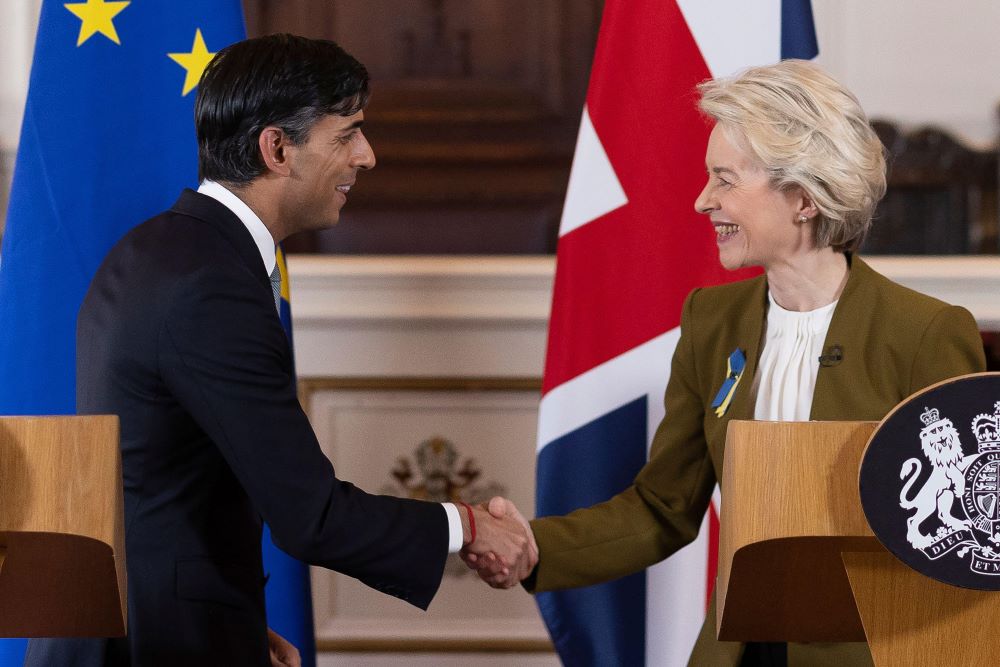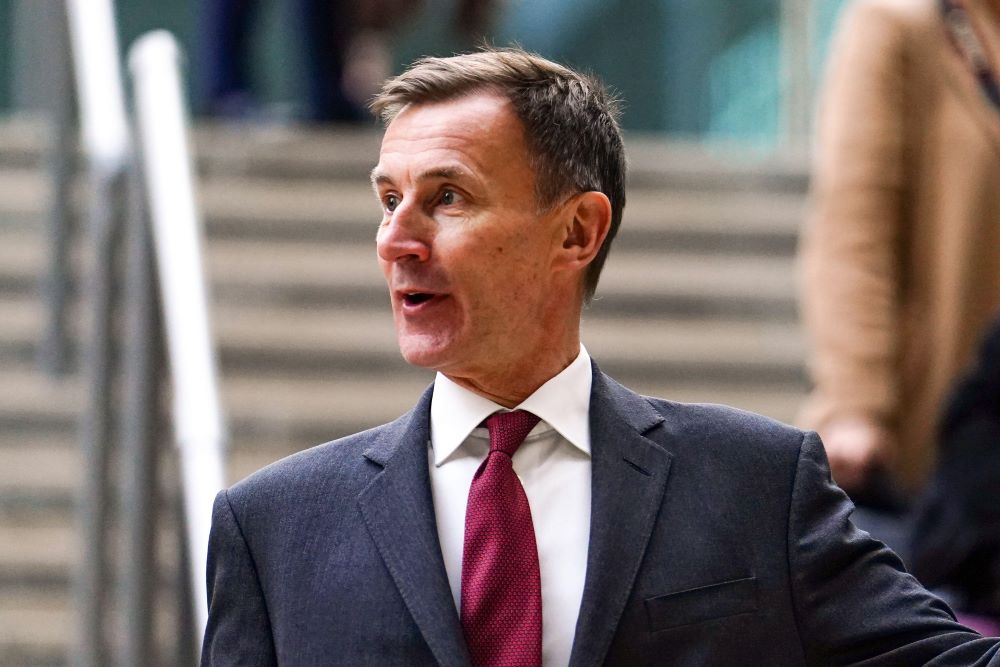Top Stories: Rishi Sunak's Belfast Charm Offensive, Economists Warning On Spending Increases
Rishi Sunak in Windsor. (Alamy)
3 min read
Prime Minister Rishi Sunak is in Belfast to promote the Windsor Framework, his new Northern Ireland Protocol deal, to Northern Irish businesses and politicians whose support he hopes to secure.
On Monday, Sunak announced that the UK had reached an agreement with the EU in a press conference with president of the European Commission, Ursula von der Leyen.
The deal will ease the flow of goods between Great Britain and Northern Ireland through the creation of new red and green lanes, removing the border down the Irish sea created by the original deal – as well as curtailing the European Court of Justice’s influence in Northern Ireland.
In a statement to MPs in the House of Commons last night, Sunak said: "After weeks of negotiations, today we have made a decisive breakthrough. The Windsor Framework delivers free-flowing trade within the whole UK.
"It protects Northern Ireland's place in our union and it safeguards sovereignty for the people of Northern Ireland. By achieving all this it preserves the delicate balance inherent in the Belfast Good Friday Agreement.
"It does what many said could not be done, removing thousands of pages of EU laws, and making permanent legally binding changes to the protocol treaty itself. That is the breakthrough we have made, those are the changes we will deliver and now is the time to move forward as one United Kingdom."
 While the deal has been welcomed by many in Westminster, Sunak is yet to convince the DUP – as well as some of his own staunch Brexiteer MPs to back it.
While the deal has been welcomed by many in Westminster, Sunak is yet to convince the DUP – as well as some of his own staunch Brexiteer MPs to back it.
The DUP has said it needs more time to pick apart the deal before making a judgement.
However, when asked about the DUP on BBC’s Today programme, this morning, Sunak said: “I'm confident that when they [the DUP] go through it they will see that this deal, I believe, does address the concerns they've had – and is a huge step forward for the people of Northern Ireland.”
Institute for Fiscal Studies (IFS) warns permanent budget tax cuts or spending increases harder to justify
The IFS has said while expected borrowing is likely to be £30bn less than expected over the next two years, and the current economic downturn will not be as severe as anticipated, public finances will remain squeezed.
The institute says borrowing is forecast to be lower mainly due to an unexpected fall in energy prices and interest rates, and stronger-than-expected tax revenues.
However, the IFS says the argument for more tax cuts or spending is still "no stronger now than in the autumn".
 Isabel Stockton, Senior Research Economist at IFS, said: "It is difficult to see an end to public sector pay disputes and industrial action that does not involve the Treasury providing additional funding to departments.
Isabel Stockton, Senior Research Economist at IFS, said: "It is difficult to see an end to public sector pay disputes and industrial action that does not involve the Treasury providing additional funding to departments.
"Short-term improvements in the borrowing outlook could allow for one-off bonuses or backdated pay awards for public sector workers.
"But it is far from clear that these improvements will last and, if the Bank of England is right, the UK’s medium-term growth outlook may have deteriorated.
"Short-term savings cannot finance permanently higher spending – which is what a higher consolidated pay rise for public sector workers would entail.
"The chancellor likely has less fiscal room for manoeuvre than recent headlines might suggest."
A number of Tory MPs have put pressure on the government to cut taxes ahead of the budget on 15 March in a bid to appeal to voters after taxes hit their highest levels since World War Two in 2022.
